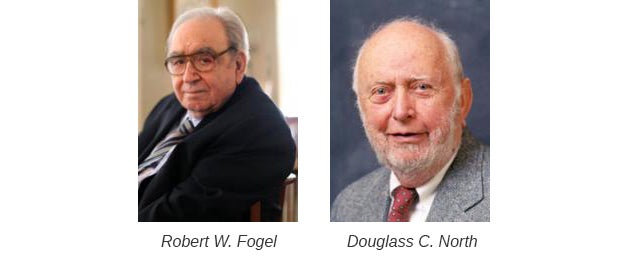Robert W. Fogel and Douglass C. North Won 1993 Nobel Prize for Contributions to Economic History
NBER Research Associate Robert W. Fogel and Douglass C. North, a former member of the NBER Board of Directors, won the 1993 Nobel Memorial Prize in Economic Sciences for their research in economic history. The Royal Swedish Academy of Sciences credited them with having “renewed research in economic history by applying economic theory and quantitative methods in order to explain economic and institutional change.”
Fogel, the inaugural director of the NBER's Development of the American Economy Program, pioneered the application of economic models and statistical methods to historical questions such as the role of railroads in American development and of slavery in the economy of the American South. North’s primarily theoretical work established that technical innovations alone are insufficient to propel economic development and that certain legal and social institutions also must be in place.
At the time of the award, Fogel was the Charles R. Walgreen Distinguished Service Professor of American Institutions at the University of Chicago[HF1] Booth School of Business. North was the Henry R. Luce Professor of Law and Liberty in the Department of Economics at Washington University in St. Louis.
More information on these Nobel laureates



